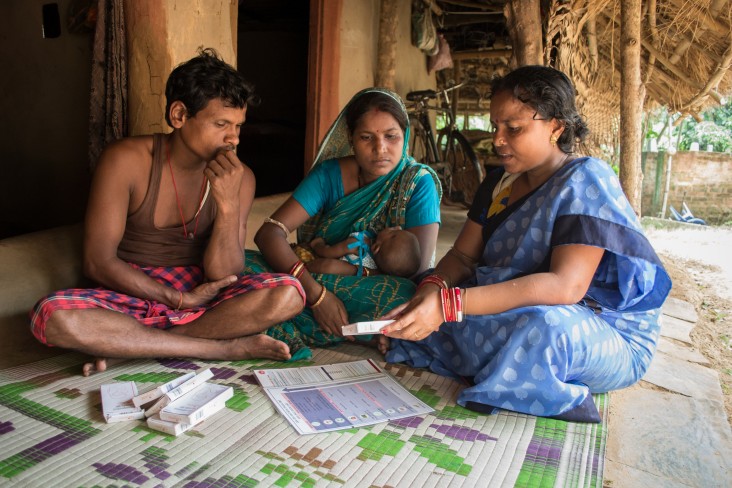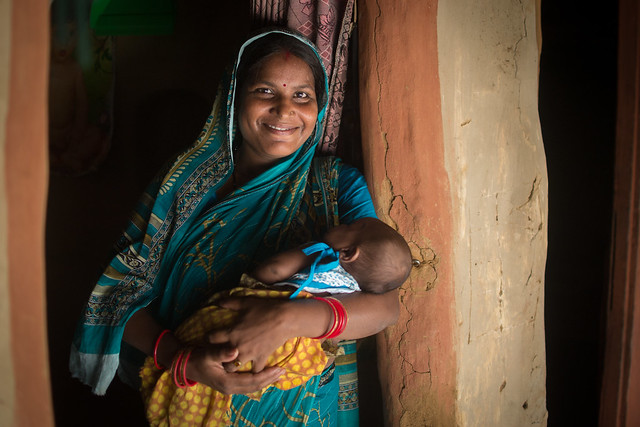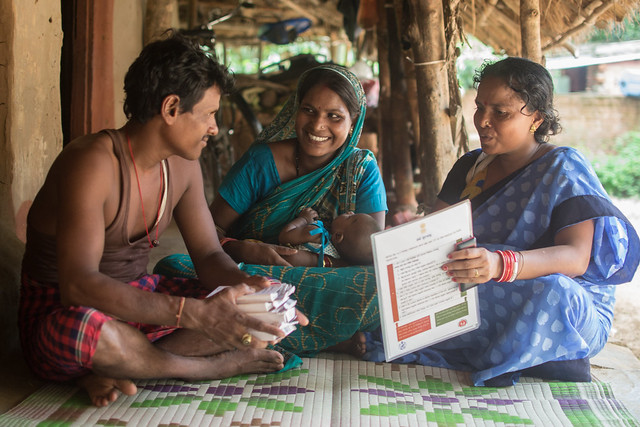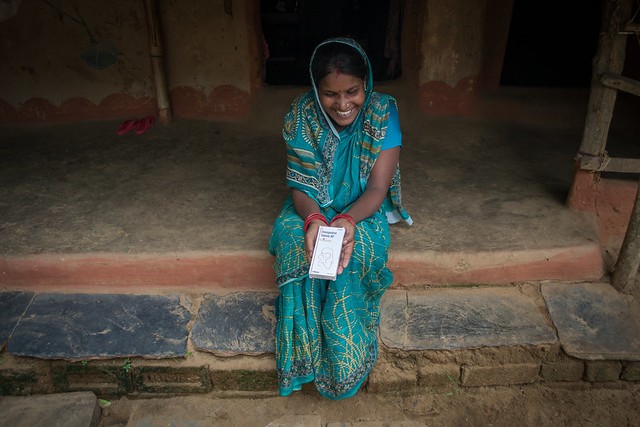- What We Do
- Agriculture and Food Security
- Democracy, Human Rights and Governance
- Economic Growth and Trade
- Education
- Environment and Global Climate Change
- Gender Equality and Women's Empowerment
- Global Health
- Humanitarian Assistance
- Transformation at USAID
- Water and Sanitation
- Working in Crises and Conflict
- U.S. Global Development Lab
Speeches Shim
Story: Anam Khan
Images: Mubeen Siddiqui
Contributor and Design: Harleen Sidhu
Cuttack District, Odisha, India
January 2019

Consider this thought, you have just had your third child, and the only family planning (FP) option available to you is the one you really do not want! How will this make you feel? Frustrated or empowered? And, now imagine, what if other FP options, newer contraceptives, were available to you? How empowering would it be? To be able to choose what is right for you, and what you want!
Jyoti Rani and Pratap Patra's FP journey is symbolic of this. Married in 2006, Jyoti Rani and Pratap Patra from Cuttack district in Odisha, India, are proud parents of three young girls, the eldest being ten and the middle one three. In the June of 2017, Jyoti gave birth to their youngest daughter, Sushri Sarojini Patra. The couple, soon after the delivery, decided to opt for a newer contraceptive method -Progestin-Only Pill (POP) - to space their next pregnancy, as Jyoti wanted a non-invasive method to start with, and to have the freedom to decide later on, whether to get a sterilization done or to have another child.
Previously, only pills available in the basket of FP choices were the Combined Oral Contraception Pills (CoC), which could not be given until six months after delivery. POP is a newer method in the basket of FP choices, and it contains a lower dose of the hormone 'Progestin.' Hence, it can be consumed by women, right after delivery, when they are still breastfeeding.
Jyoti had heard of the POP pill from Lakshmi, the local community health worker, also known as an Accredited Social Health Activist (or ASHA). A strategic arm of the country’s health department, an ASHA acts as a critical link between the health establishment and the community. A resident from within the community, she helps in informing the community members about FP, maternal and child health, nutrition, important dates for health visits to be made to the nearest health facility etc. When Jyoti was pregnant with her third child, Lakshmi had visited the couple and counseled them both, on the available FP methods, and helped the couple make an informed decision that best suited the family.


“I was and still am scared of getting an operation (tubal ligation) done. I am happy with the medicine”, says Jyoti who decided to use the POP until six months after her third child’s birth, and then accompanied by Lakshmi, she went to the MCSP supported community health center in Mahidharpura, to switch from POP to a different spacing method.
Jyoti switched to another FP method, because the efficacy of POP as a contraception method reduces after six months. However, POP was critical in protecting Jyoti post-delivery - a vulnerable period, when the unmet need for FP is the highest and a mother needs that time to heal and be able to focus on her baby, without the worry of an unintended pregnancy.

The Patras live in Cuttack district in Odisha where nearly 13.6 percent of married women (15 – 49 yrs) have an unmet need for FP (NFHS-4 data), but newer contraceptive methods, are helping more couples use FP.
USAID's flagship Maternal and Child Survival Program (MCSP) , led by Jhpiego, is providing technical assistance to the Government of India (Gol) to reach 48 million new users of contraception. Expanding the current basket of FP choices is a key strategy to expand the reach of FP in India. Inclusion of POPs and Centchroman in the FP basket are a part of this effort.
The MCSP program works in five states - Odisha, Chhattisgarh, Assam, Maharashtra and Telangana, and is built on the tenets of informed consent, gender sensitivity, respectful care and community participation.
As part of MCSP's programmatic intervention, community health workers like Lakshmi, have received training on the newer contraceptive methods, and they are in turn helping women such as Jyoti, take control of their health and fertility.
The smile on Jyoti Rani's face endorses the impact that newer contraceptive methods like POP are having on the lives of women, giving them the power to make informed choices and better health decisions for themselves. The ripple effects of this empowerment will be felt on their children, families and the communities where they live.
Jyoti sums it up clearly, “I feel safer knowing that I am taking measures to make sure I do not get pregnant.”

Comment
Make a general inquiry or suggest an improvement.